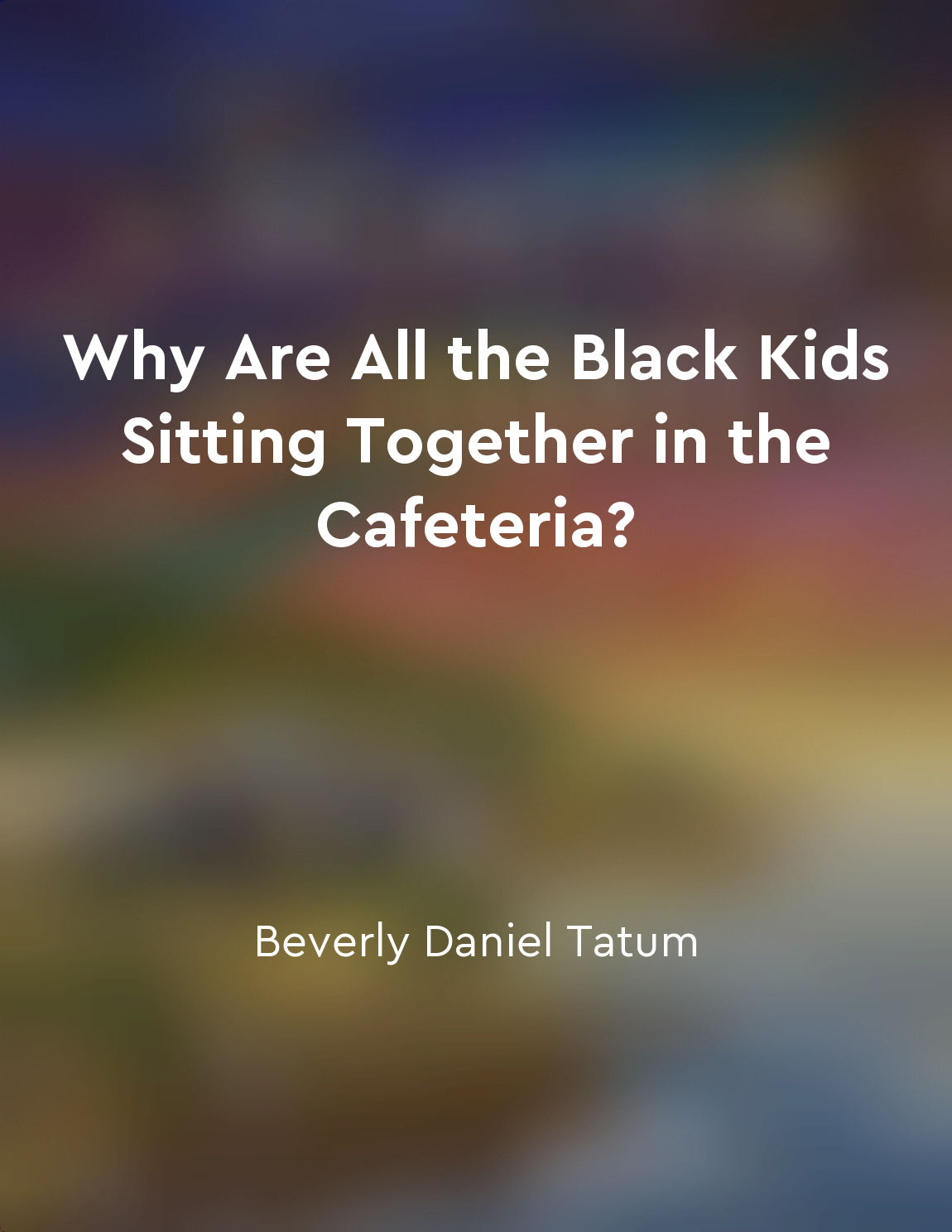Definition of racism from "summary" of How to Be an Antiracist by Ibram X. Kendi
In order to understand racism, it is important to recognize that there are different definitions of racism that have been put forth over the years. Some definitions focus on individual attitudes and behaviors, while others look at systemic and institutional structures that perpetuate racial inequality. One common definition of racism is the idea that it is simply a form of prejudice or discrimination based on race. This definition suggests that racism is primarily about individual beliefs and actions, rather than larger societal issues. However, this definition fails to capture the full complexity of racism and its impact on marginalized communities. Another definition of racism looks at the ways in which systemic structures and institutions perpetuate racial inequality. This definition recognizes that racism is not just about individual attitudes, but about the ways in which power and privilege are distributed in society. It acknowledges that racism is deeply ingrained in our social, political, and economic systems, and that it can have far-reaching effects on people's lives. In his book "How to Be an Antiracist," Ibram X. Kendi offers a more nuanced definition of racism. He argues that racism is not just about individual beliefs or actions, but about the ways in which those beliefs and actions contribute to larger systems of oppression. He writes that "racist ideas are ideas that suggest one racial group is inferior or superior to another racial group in any way." Kendi's definition of racism emphasizes the importance of looking at the broader societal context in which racism operates. He suggests that in order to combat racism, we must not only challenge individual beliefs and actions, but also work to dismantle the systems and structures that perpetuate racial inequality. This perspective highlights the interconnected nature of racism, and the ways in which it can manifest in both overt and subtle ways.- Kendi's definition of racism challenges us to think more critically about the ways in which racism operates in our society, and to take action to create a more just and equitable world for all. By understanding the complexities of racism and its impact on marginalized communities, we can work towards building a more inclusive and antiracist society.
Similar Posts
Social loafing occurs when individuals exert less effort in a group setting
Social loafing is a phenomenon that occurs when individuals find themselves in a group setting and, as a result, exert less eff...
Langston Hughes was a prominent poet
Langston Hughes, a towering figure in American literature, is often celebrated for his profound impact on the world of poetry. ...

Challenging systems of privilege is necessary for progress
In order to make progress towards a more equitable society, it is imperative to address and dismantle systems of privilege that...

Speaking up is a form of resistance
Speaking up is a form of resistance. It is a way of pushing back against the status quo, against the oppressive systems that se...

Embracing discomfort leads to growth
To grow in our understanding of race and racism, we must be willing to sit in discomfort. We must be open to feeling the weight...

Educating oneself on social issues
To be an antiracist is to constantly be learning about the social issues that shape our world. It is not enough to simply ackno...

